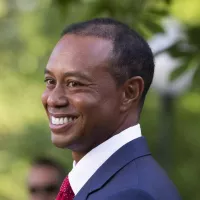Brunei, or Brunei Darussalam, is a Southeast Asian country located on Borneo's northern coast. Except for its South China Sea coastline, it's entirely encircled by the Malaysian state of Sarawak, divided by Sarawak's Limbang district. Brunei is Borneo's sole sovereign state; Malaysia and Indonesia share the rest. As of 2023, it has 455,858 residents, with about 180,000 in its capital, Bandar Seri Begawan. Malay is the official language, and while other faiths are nominally permitted, Islam is the state religion. Brunei's government is an absolute monarchy under the Sultan, combining English common law with Islamic jurisprudence, including sharia.
1906: British Residents Introduced in Brunei
In 1906, the British implemented a residential system in Brunei, where British residents advised the Sultan on administrative matters, gradually assuming more control.
July 1922: Formation of British Malayan Petroleum Company
The British Malayan Petroleum Company, which would later become Brunei Shell Petroleum Company, was established on July 22, 1922.
1926: First Signs of Oil
In late 1926, individuals named F.F. Marriot and T.G. Cochrane detected the scent of oil near the Seria River. This discovery led to further investigation and eventually the discovery of oil in Brunei.
1927: Reports of Gas Seepages
Gas seepages were reported in the Seria region in 1927, further fueling the exploration for oil.
July 1928: Drilling of Seria Well Number One
On July 12, 1928, the drilling of Seria Well Number One (S-1) commenced, marking a pivotal moment in Brunei's history.
April 1929: Discovery of Oil in Seria
On April 5, 1929, oil was struck at a depth of 297 meters (974 feet) at Seria Well Number One, a discovery that would transform Brunei's economy.
August 1929: Drilling of Seria Well Number Two
The drilling of Seria Well Number Two commenced on August 19, 1929, and it remarkably continued to produce oil as of 2009, underscoring the significance of this oil field.
1940: Increased Oil Production
By 1940, oil production in Brunei had significantly increased, exceeding six million barrels.
September 1941: British Anticipation of Japanese Attack
In September 1941, the British, anticipating a Japanese invasion, took measures to disable the Seria oilfield by filling oil wells with concrete to prevent their use by the enemy.
December 1941: Japanese Invasion of Brunei
On December 16, 1941, eight days after the attack on Pearl Harbor, Japanese forces invaded Brunei, landing 10,000 troops at Kuala Belait.
1941: Transition to Latin Alphabet for Malay in Brunei
Around 1941, Brunei transitioned from using the Jawi script to the Latin alphabet for writing Malay, marking a significant shift in the country's language practices.
1941: Establishment of British High Commissioner for Brunei
Before 1941, the Governor of the Straits Settlements in Singapore oversaw the responsibilities of the British High Commissioner for Brunei, Sarawak, and North Borneo. However, in 1941, the role of British High Commissioner for Brunei was created, with the first appointee being Sir Charles Ardon Clarke, the then-Governor of Sarawak.
1943: Establishment of Japanese Naval Base
In 1943, during their occupation of Brunei, Japanese naval units established a base in Brunei Bay and Labuan, utilizing the airport runway that had been constructed earlier.
1943: Hyperinflation in Japanese-Occupied Brunei
The year 1943 brought about a severe economic crisis in Japanese-occupied Brunei, as hyperinflation ravaged the local currency, rendering it virtually worthless by the war's end.
1944: Allied Bombing Campaign
The year 1944 saw the Allies initiate a bombing campaign against Japanese forces occupying Brunei. This campaign resulted in the destruction of significant portions of the town and Kuala Belait.
June 1945: Brunei Town Recaptured from Japanese Forces
In June 1945, the Australian 9th Division, supported by American forces, landed in Brunei to liberate it from Japanese occupation. After three days of intense fighting, Brunei Town was recaptured, although with significant damage to buildings including the Mosque.
July 1945: British Military Administration Takes Control in Brunei
Following the Japanese surrender in July 1945, the British Military Administration (BMA) assumed control in Brunei. Comprised mainly of Australian officers and personnel, the BMA focused on reviving Brunei's economy and infrastructure, which suffered extensive damage during the Japanese occupation.
September 1945: Japanese Surrender in Borneo
On September 10, 1945, Lieutenant-General Masao Baba, leading the Japanese forces in Brunei, Borneo, and Sarawak, formally surrendered to the Allied forces in Labuan. This marked the end of Japanese occupation in these areas.
April 1946: Formation of Barisan Pemuda
On April 12, 1946, the Barisan Pemuda (Youth Front), abbreviated as BARIP, was established as the first political party in Brunei. Its main objectives included upholding the Sultan's sovereignty, protecting the country's independence, and advocating for the rights of the Malay people. BARIP also played a role in shaping the national anthem.
1947: HSBC Establishes Presence in Brunei
HSBC initiated its operations in Brunei in 1947, representing its entry into the country's banking sector.
1947: High Death Rate in Brunei
In 1947, Brunei recorded a significantly high death rate of 20 per thousand people.
1948: Dissolution of Barisan Pemuda
The Barisan Pemuda (Youth Front), Brunei's first political party, was dissolved in 1948 due to a lack of activity.
July 1953: Formation of Tujuh Serangkai Committee
In July 1953, Sultan Omar Ali Saifuddien III established a seven-member committee called Tujuh Serangkai. The committee's purpose was to gather public opinion and feedback on the potential implementation of a written constitution for Brunei.
1953: Introduction of the First National Development Plan
Brunei's inaugural National Development Plan, launched in 1953, marked a significant step towards the nation's progress. With a budget of B$100 million approved by the Brunei State Council, the plan aimed at bolstering the country's overall development. E.R. Bevington, an official from the Colonial Office in Fiji, was entrusted with the responsibility of implementing this ambitious plan. One of the notable achievements under this plan was the construction of a US$14 million Gas Plant.
1953: Malaria Reduction Efforts Begin
Brunei, in 1953, had approximately 300 reported cases of malaria.
1953: Establishment of Brunei Press PLC
In 1953, the government of Brunei granted permission for the formation of Brunei Press PLC, a printing and publishing company, marking a step in the development of media in the country.
May 1954: Agreement to Draft a Constitution
In May 1954, a significant meeting occurred between the Sultan, the Resident, and the High Commissioner to discuss the findings presented by the Tujuh Serangkai committee. Following their deliberations, they reached a consensus to move forward with drafting a constitution for Brunei.
1954: Offshore and Onshore Oil Exploration
In 1954, Brunei Shell Petroleum commenced comprehensive survey and exploration activities in both offshore and onshore oil fields, marking a crucial step in assessing the nation's oil and gas potential.
1954: Infrastructure Improvements: New Roads and Berakas Airport
The year 1954 witnessed notable enhancements to Brunei's infrastructure. New roads were constructed, expanding connectivity and accessibility across the nation. Moreover, the reconstruction of Berakas Airport reached completion, modernizing the country's main aviation hub and facilitating smoother travel and transportation.
1956: Significant Increase in Oil Production
By 1956, Brunei witnessed a significant boost in its oil production, reaching an impressive output of 114,700 barrels per day (bpd). This surge in production underscored the success of the ongoing exploration and development efforts in the energy sector.
1957: First Offshore Oil Well Drilled
In a significant step for Brunei's oil and gas industry, the nation's inaugural offshore oil well was drilled in 1957.
1958: Increased Investment in Public Education
By 1958, Brunei's commitment to enhancing public education was evident in the substantial investment of $4 million allocated towards its development.
March 1959: Discussions on Proposed Constitution in London
In March 1959, Sultan Omar Ali Saifuddien III led a delegation to London to engage in discussions with the British government regarding the proposed constitution for Brunei. Leading the British delegation was Sir Alan Lennox-Boyd, the Secretary of State for the Colonies. Following the discussions, the British Government accepted the draft constitution.
September 1959: Signing of the Constitution Agreement
On September 29, 1959, a pivotal event took place in Brunei Town with the signing of the Constitution Agreement. This agreement, signed by Sultan Omar Ali Saifuddien III representing Brunei and Sir Robert Scott, the Commissioner-General for Southeast Asia, representing the United Kingdom, marked a significant step towards Brunei's self-governance.
1959: Implementation of Brunei's Constitution
Brunei's constitution, which established the Sultan as the head of state with full executive authority, came into effect in 1959.
1959: Success in Malaria Eradication Efforts
By 1959, thanks to concerted efforts and collaboration with the World Health Organization, Brunei witnessed a significant decline in malaria cases, dropping to just 66. This success underscored the effectiveness of public health interventions in tackling this endemic disease.
1959: Brunei Declared a Self-Governing State
In 1959, a new constitution was implemented, formally recognizing Brunei as a self-governing state. Despite this newfound autonomy, the United Kingdom retained responsibility for Brunei's foreign affairs, security, and defense.
1959: Brunei's Constitution Guarantees Freedom of Religion for Non-Muslims
The 1959 Constitution of Brunei includes provisions that guarantee the right of non-Muslims to practice their faith, although celebrations and prayers are to be confined to places of worship and private residences.
1959: End of the Residential System
The residential system in Brunei, established in 1906, came to an end in 1959.
1959: End of the Residential System and a New Constitution
The year 1959 marked a turning point with the abolishment of the British residential system in Brunei and the drafting of a new constitution.
1962: Brunei Revolt Suppressed
A rebellion against the monarchy, known as the Brunei Revolt, erupted in 1962. The uprising was quelled with assistance from the United Kingdom. This event played a role in the Sultan's decision to withdraw from joining the newly formed Malaysia, which was then under the umbrella of the North Borneo Federation.
1962: Launch of the Second National Development Plan
Brunei initiated its Second National Development Plan in 1962, building upon the successes of its predecessor and outlining further ambitions for the nation's growth and prosperity.
1962: Brunei Revolt and Emergency Powers
Following the Brunei Revolt of 1962, the Sultan of Brunei assumed emergency powers, effectively placing the country under martial law.
1962: Rebellion Against the Monarchy
In 1962, Brunei faced a small-scale armed rebellion aimed at the monarchy. The revolt, linked indirectly to the Indonesia-Malaysia confrontation, was quelled with British support.
1962: Last Elections Held in Brunei
The last elections in Brunei were held in 1962. Since then, the country's political system has operated without democratic elections.
1963: Major Oil and Gas Discovery
A pivotal moment in Brunei's history arrived in 1963 with the discovery of a major oil and gas field. This discovery would have a transformative impact on the nation's economy, propelling it to new heights of prosperity and development.
1967: Sultan Hassanal Bolkiah's Reign Begins
In 1967, Sultan Hassanal Bolkiah ascended to the throne of Brunei, marking the beginning of his reign.
1969: Brunei Joins FIFA
Brunei's national football team became a member of FIFA in 1969, signifying the country's entry into international football.
November 1971: Discussions and Agreement on Constitutional Amendments
In November 1971, Sultan Hassanal Bolkiah embarked on a diplomatic visit to London. The primary objective of this visit was to engage in discussions with British authorities concerning potential amendments to the 1959 constitution. The culmination of these discussions was the signing of a new agreement on November 23, 1971, with Anthony Royle representing the British side.
1972: Citibank Commences Operations in Brunei
Citibank entered the Brunei market in 1972, marking its presence in the country's financial sector.
January 1979: Treaty Granting Brunei Control over International Responsibilities
On January 7, 1979, Brunei and the United Kingdom signed a significant treaty. Represented by Lord Goronwy-Roberts, the United Kingdom officially granted Brunei the authority to assume control over its international responsibilities, paving the way for the nation to operate as a fully independent entity on the world stage. As part of the agreement, Britain pledged ongoing support to Brunei in matters related to diplomacy, further strengthening the ties between the two nations.
1979: Brunei Assumes Control of Foreign Relations
Brunei took over the management of its foreign relations from the UK government in 1979.
May 1983: UK Announces Brunei's Independence Date
In May 1983, the United Kingdom made a formal announcement declaring January 1, 1984, as the date for Brunei's independence. This announcement solidified the timeline for Brunei's transition to a fully sovereign nation.
December 1983: Preparations for Independence Day
On December 31, 1983, the eve of Brunei's independence, large gatherings took place at the main mosques across all four districts of the country. These gatherings were a testament to the nation's anticipation and excitement as it prepared to embrace its newfound sovereignty.
January 1984: Proclamation of Independence
At the stroke of midnight on January 1, 1984, marking the official start of Brunei's independence, the Proclamation of Independence was read out by Sultan Hassanal Bolkiah, a pivotal moment that signified the nation's transition to full sovereignty. As Brunei embraced its independence, Sultan Hassanal Bolkiah's title transitioned from "His Royal Highness" to "His Majesty," reflecting the nation's elevated status.
January 1984: Brunei Joins the Commonwealth and ASEAN
Brunei gained independence on January 1, 1984, and immediately became the 49th member of the Commonwealth. Shortly after, on January 7, 1984, Brunei joined ASEAN as its sixth member.
January 1984: Brunei Joins the Organisation of the Islamic Conference
In January 1984, Brunei became a full member of the Organisation of the Islamic Conference (now the Organisation of Islamic Cooperation) at the Fourth Islamic Summit held in Morocco.
January 1984: Brunei Regains Full Independence
In January 1984, Brunei ended its status as a British protectorate and became a fully sovereign state.
January 1984: Brunei's Independence Day
January 1, 1984, marked a historic day for Brunei as it officially gained independence, embarking on a new chapter as a sovereign nation.
September 1984: Brunei Joins the United Nations
On September 22, 1984, Brunei achieved another significant milestone by joining the United Nations as its 159th member. This membership solidified Brunei's place on the global stage and reflected its commitment to international cooperation and diplomacy.
1984: End of British Protectorate Status
Brunei's status as a British protectorate concluded in 1984.
1984: Establishment of Brunei's Ministry of Foreign Affairs
Upon gaining independence in 1984, Brunei established its Ministry of Foreign Affairs, upgrading its Diplomatic Service to the ministerial level.
1989: Brunei Joins APEC
Brunei became a member of the Asia-Pacific Economic Cooperation forum (APEC) in 1989.
1990: Forest Cover in Brunei
In 1990, Brunei's forest cover was reported to be 413,000 hectares.
1990: "Borneo Bulletin" Becomes a Daily Newspaper
Initially a weekly community paper, the "Borneo Bulletin" transitioned into a daily newspaper in 1990, expanding its reach and frequency of publication.
March 1994: Formation of BIMP-EAGA
The BIMP-EAGA was formed on March 24, 1994, at the Inaugural Ministers' Meeting in Davao, Philippines, with Brunei as a major player.
January 1995: Brunei Becomes a Founding Member of the WTO
On January 1, 1995, Brunei became a founding member of the World Trade Organization (WTO).
1996: Brunei's Debut at the Summer Olympics
Brunei participated in the Olympic Games for the first time in 1996, marking its entry into the prestigious international sporting event.
1999: Brunei's Economic Growth
Brunei experienced substantial economic growth during the 1990s and 2000s, fueled by its oil and natural gas resources, leading to a 56% GDP increase between 1999 and 2008 and transforming the nation into an industrialized economy.
1999: Brunei Hosts Southeast Asian Games
In 1999, Brunei hosted the Southeast Asian Games, representing the first time the country hosted a major international sporting event.
November 2000: Brunei Hosts APEC Economic Leaders' Meeting
Brunei hosted the APEC Economic Leaders' Meeting in November 2000.
2000: Brunei's Ancient Trading History
Archeological evidence reveals that areas of present-day Brunei were part of the Maritime Jade Road, a trading network spanning 3,000 years, from 2000 BC to 1000 AD.
2000: Brunei Chairs APEC Forum
Brunei played a significant role in global affairs in 2000 by serving as the chairman for the Asia-Pacific Economic Cooperation (APEC) forum.
July 2002: Brunei Hosts ASEAN Regional Forum
Brunei hosted the ASEAN Regional Forum (ARF) in July 2002.
2004: Arabic Language Education in Brunei
As of 2004, Brunei had six Arabic schools and one religious teachers' college, highlighting the emphasis on Arabic language education within the country's education system.
2006: Establishment of "The Brunei Times"
The year 2006 witnessed the launch of "The Brunei Times," an independent English-language newspaper in Brunei, adding to the diversity of media outlets in the country.
2008: Brunei Misses the Summer Olympics
Brunei was absent from the 2008 Summer Olympics, marking the only time the country did not participate in the event since its debut.
2008: Brunei's Economic Transformation Continues
By 2008, Brunei's economic transformation into an industrialized nation was evident, marked by a significant 56% increase in GDP since 1999, driven by its robust oil and natural gas sectors.
April 2009: Brunei and the Philippines Strengthen Bilateral Cooperation
In April 2009, Brunei and the Philippines signed a Memorandum of Understanding (MOU) to enhance bilateral cooperation in agriculture, trade, and investments.
April 2009: Brunei Promotes Rice Self-Sufficiency
In April 2009, Brunei took a significant step towards food self-sufficiency by renaming its Brunei Darussalam Rice 1 to Laila Rice and launching the "Padi Planting Towards Achieving Self-Sufficiency of Rice Production in Brunei Darussalam" ceremony.
July 2009: Launch of Brunei's National Halal Branding Scheme
In July 2009, Brunei launched its national halal branding scheme, Brunei Halal, with the aim of expanding its export market reach.
August 2009: Brunei's Royal Family Harvests First Laila Rice Crop
Following years of efforts to increase local rice production, the Royal Family of Brunei harvested the first Laila padi stalks in August 2009.
2009: Brunei and Malaysia Address Border Dispute and Oil Field Claims
In 2009, Brunei and Malaysia reportedly settled a longstanding border dispute regarding Limbang. Brunei agreed to accept the existing border in exchange for Malaysia relinquishing claims to oil fields within Bruneian waters. However, the Brunei government denies any such agreement and maintains its claim over Limbang.
2009: Seria Well Number Two Still Producing
Remarkably, Seria Well Number Two, drilled in August 1929, remained an active oil-producing well as of 2009, highlighting the enduring productivity of this oil field.
July 2010: Brunei's Population Statistics
As of July 2010, Brunei's total population was approximately 408,000. A significant majority of the population, about 97%, resided in the western region encompassing the districts of Belait, Tutong, and Brunei-Muara. In contrast, the mountainous eastern region, Temburong District, was sparsely populated with only around 10,000 residents.
2010: Amendments to Family Law in Brunei
In 2010, Brunei amended its Islamic Family Law Order and Married Women Act Order to include provisions protecting against sexual assault within marriage.
July 2012: Worst Aviation Accident in Brunei's History
On July 20, 2012, a Bell 212 helicopter operated by the Brunei air force crashed in Kuala Belait, resulting in the loss of 12 lives, making it the worst aviation incident in the country's history.
October 2013: Sultan Announces Implementation of Sharia Penal Code
In October 2013, Sultan Hassanal Bolkiah announced Brunei's intention to implement a Sharia-based penal code for the country's Muslim population, representing about two-thirds of its citizens. This announcement drew international attention and sparked debate.
2013: Brunei Chairs and Hosts ASEAN Summit
Brunei served as the chair for ASEAN in 2013 and hosted the ASEAN summit in the same year.
April 2014: Implementation of Brunei's Revised Penal Code Begins
In April 2014, Brunei began implementing its revised penal code, which included severe punishments such as the death penalty for various offenses, drawing criticism from the UN for its broad application.
2014: Introduction of Brunei's Sharia Penal Code
Brunei first implemented its controversial Sharia penal code in 2014, which outlined harsh punishments for various crimes, including theft, drug offenses, and same-sex relationships.
2014: Citibank Exits Brunei's Financial Market
Citibank ceased its operations in Brunei in 2014, withdrawing from the country's financial landscape.
2014: Brunei's Economic Challenges and Development Plans
In 2014, Brunei faced economic challenges with a 6.9% unemployment rate. The government focused on diversifying the economy, upgrading the workforce, and strengthening sectors like banking and tourism.
2014: Brunei's Ethnic Composition
In 2014, Brunei's population primarily consisted of Malays (65.7%), followed by Chinese (10.3%), indigenous groups (3.4%), and other smaller ethnicities (20.6%), indicating a diverse demographic makeup.
December 2015: Christmas Celebrations in Brunei
In December 2015, despite the ban on public Christmas decorations following the adoption of the Sharia Penal Code, approximately 4,000 out of an estimated 18,000 local Catholics in Brunei attended Christmas Eve and Christmas Day masses. The celebrations were confined to places of worship and private residences, in line with existing regulations.
2015: Forest Ownership in Brunei
In 2015, it was reported that 100% of Brunei's forest area was publicly owned.
2016: Brunei Increases Defense Budget
Brunei's Legislative Council proposed a 5% increase in the defense budget for the 2016–17 fiscal year, bringing it to 564 million Brunei dollars, approximately 10% of the total national expenditure.
2016: Completion of Sharia Penal Code Implementation
The year 2016 marked the complete implementation of the Sharia-based penal code in Brunei. This legal framework, based on Islamic law, covers a wide range of offenses and punishments. The move established Brunei as the first and only East Asian nation to integrate Sharia law into its penal code, with the exception of the Aceh region in Indonesia. However, this decision also attracted criticism from international bodies, including the United Nations, which expressed concerns over its potential impact on human rights.
November 2017: HSBC Ends Operations in Brunei
After operating in Brunei for 70 years, HSBC closed its operations in the country in November 2017.
May 2019: Brunei Extends Moratorium on Death Penalty to Sharia Law
In May 2019, Brunei expanded its moratorium on the death penalty to include the Sharia criminal code, which had previously allowed punishments such as death by stoning for homosexual acts.
2019: Brunei's Road Network Development
By 2019, Brunei had established a road network spanning 3,713.57 kilometers, with 86.8% of it paved, indicating significant progress in infrastructure development.
2019: Brunei Postpones Second Phase of Sharia Penal Code
In 2019, Brunei announced the postponement of the second phase of its Sharia penal code, which had been introduced in 2014 and included punishments like amputation and death by stoning for offenses such as theft, drug offenses, and same-sex relationships.
March 17, 2020: Opening of the Temburong Bridge
On March 17, 2020, Brunei celebrated the inauguration of a new 30-kilometer roadway connecting the Muara and Temburong districts. A significant portion of this roadway, 14 kilometers, traversed the Brunei Bay, marking a major infrastructure achievement. The bridge's construction involved a substantial investment of $1.6 billion.
2020: Forest Cover in Brunei
In 2020, Brunei had approximately 72% forest cover, equivalent to 380,000 hectares. This marked a decrease from 413,000 hectares in 1990.
2020: Brunei's Reliance on Fossil Fuels for Electricity
In 2020, Brunei's electricity production remained heavily reliant on fossil fuels, with renewable energy sources contributing to less than 1% of the total electricity generated.
2021: Brunei's Population and Demographics
As of 2021, Brunei had a population of 445,373, with 76% residing in urban areas. The country's urbanization rate was estimated at 2.13% annually between 2010 and 2015, and the average life expectancy stood at 77.7 years.
2021: Religion in Brunei
In 2021, the religious landscape of Brunei was characterized by a diverse range of beliefs and practices.
2024: Brunei's Economic Performance and Global Rankings
In 2024, Brunei held the position of the fifth-richest nation according to Forbes, primarily due to its substantial oil and natural gas reserves. The country also achieved an 88th ranking in the Global Innovation Index.
Mentioned in this timeline

Martial law is the imposition of military rule in place...

Christmas is an annual festival celebrated on December th commemorating...
The Association of Southeast Asian Nations ASEAN is a regional...
Morocco officially the Kingdom of Morocco is a North African...
China officially the People's Republic of China is an East...

Football is a family of team sports primarily involving kicking...
Trending

17 minutes ago Larson and SVG collision leads to wreck in NASCAR Atlanta race.

17 minutes ago Chastain and Hill Collide on Final Lap at Atlanta's O'Reilly Race

18 minutes ago Hocevar Admits Fault in Logano Incident, Hamlin Involved in Atlanta NASCAR Crash

18 minutes ago Tiger Woods eyes Masters return, not ruling out participation, Scheffler favored in 2026.

19 minutes ago Jayson Tatum's Injury Status Updates, Return Date Still Unknown Amid Celtics Practice

1 hour ago Sebastian Korda Dominates Tommy Paul to Win Delray Beach Open Trophy.
Popular

Jesse Jackson is an American civil rights activist politician and...

Barack Obama the th U S President - was the...

Bernie Sanders is a prominent American politician currently serving as...

Michael Joseph Jackson the King of Pop was a highly...
WWE Raw a professional wrestling television program by WWE airs...
The Winter Olympic Games a major international multi-sport event held...